
By Alice Gray
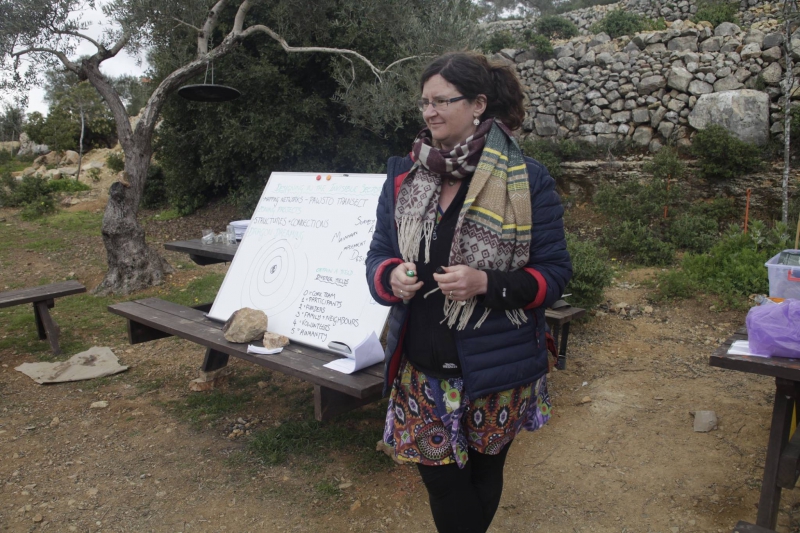 Hello! My name is Alice Gray and I’ve been a permaculturalist since 2008, when I helped found an experimental permaculture farm and international volunteer project in Palestine, where I lived from 2006-2015. I’d studied Ecology and Soil Science at university, and decided to move to Palestine when I graduated to try to put my skills to use working in the development sector there.
Hello! My name is Alice Gray and I’ve been a permaculturalist since 2008, when I helped found an experimental permaculture farm and international volunteer project in Palestine, where I lived from 2006-2015. I’d studied Ecology and Soil Science at university, and decided to move to Palestine when I graduated to try to put my skills to use working in the development sector there.
After a couple of years behind a desk, myself and some friends decided we wanted to try a more hands-on and ground-up approach to the many challenges Palestinians face as a result of the occupation and colonisation of their land. So we rented some land and started prototyping permaculture-inspired solutions to environmental problems, set up a native tree nursery, opened our doors to international volunteers and started working directly with Palestinian farmers, schools and universities.
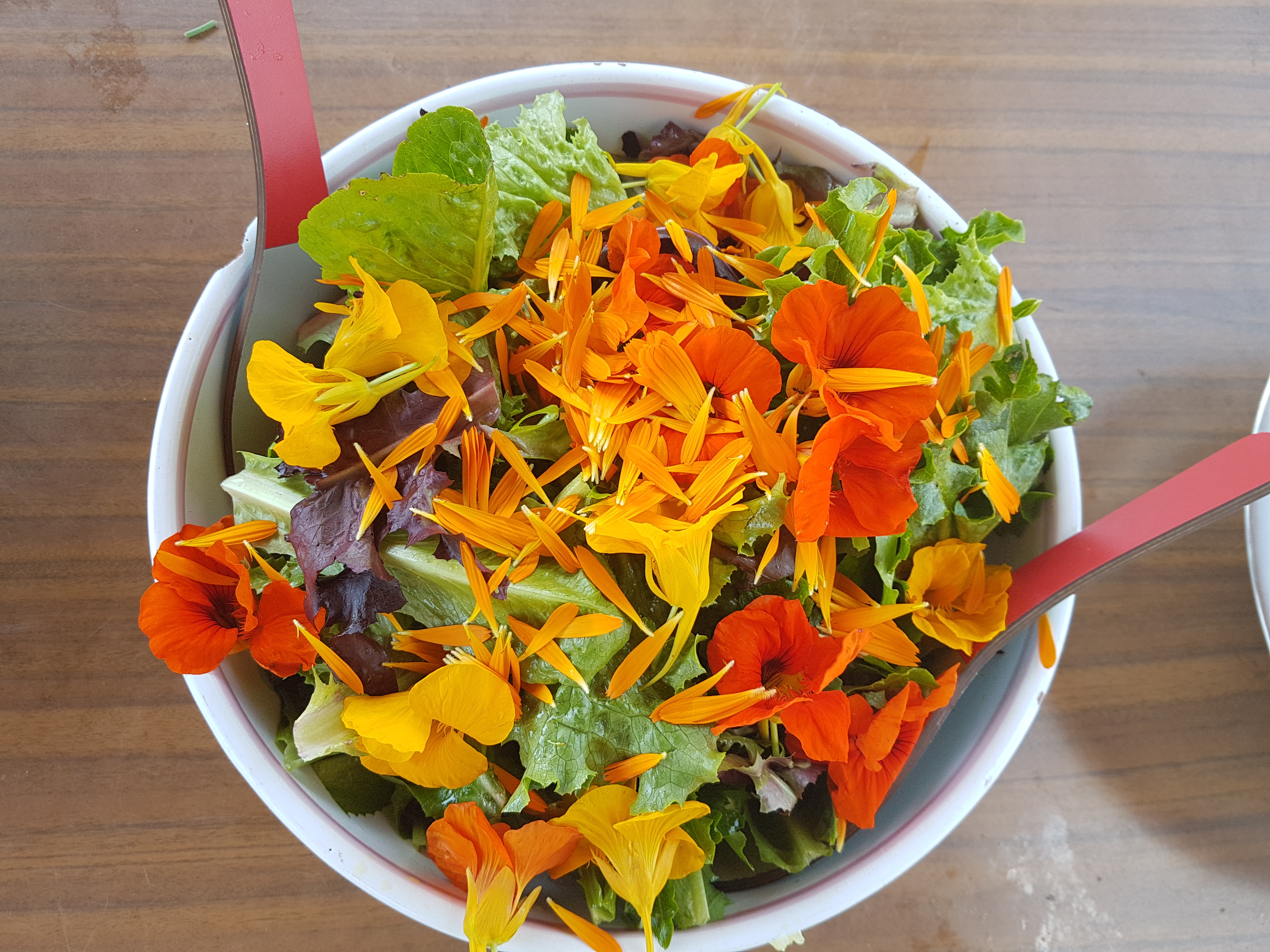
My time in Palestine taught me the fundamental importance of connection to land – as a means of empowering ourselves to take back control over our relationship with the environment and to provide for ourselves, as well as the power of community in surviving through difficult times. And a great love of authentic food culture, the seasonal excitement for produce, the hand-carts in the streets piled high with the flavour of the month: green chickpeas, strawberries, bitter cucumber, apricots, beans, tomatoes, figs, loquats. Whatever is in season, everybody knows about it and whoever you visit, food forms the backbone of hospitality as well as the basis for a deep love for the land itself that forms the warp and weft of the fabric of the culture.
It seems to me that we have lost that connection and that love in Britain, lost it so long ago that we do not even mourn for it. We have forgotten to be angry that it was taken from us; and as a society it is that disconnection that is at the heart of so much that is wrong: mental health crises, environmental impoverishment, and so very much really crap food and attendant physical health problems. So it was a natural move for me when I got back to North Wales after a decade in the Middle East to throw my energy behind founding a community farm: Tyddyn Teg.
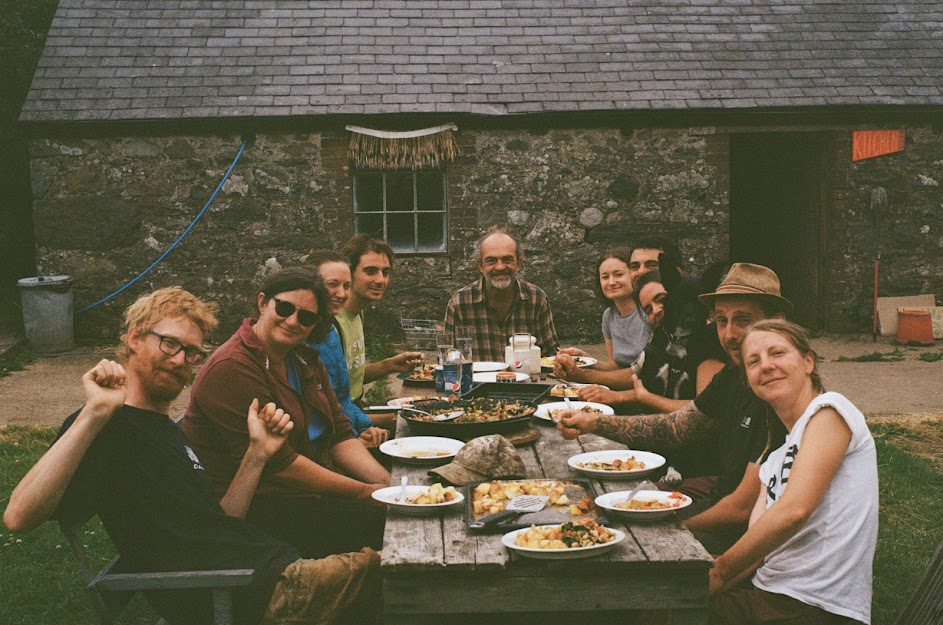
I say ‘found’ – Tyddyn Teg is in many ways a succession project, building on the life’s work of John and Pippa Evans who converted the farm from conventional livestock to organic veg production 20 years before our motley crew turned up, and ran a highly successful veg-box scheme. We happened to be looking for land at a time when they wanted to retire, and despite a few hiccups in getting both money and people together, the hand-over was completed in 2015 and Tyddyn Teg Cooperative was born.
Tyddyn Teg means ‘fair farm’ in Welsh and this simple phrase is at the heart of who we are: we want to farm in way that is fair for nature, our workers and the community we serve. We want to be part of a transition movement that helps rebuild the connection between land, food and people and does it in a way that is joyful, replicable and sustainable.
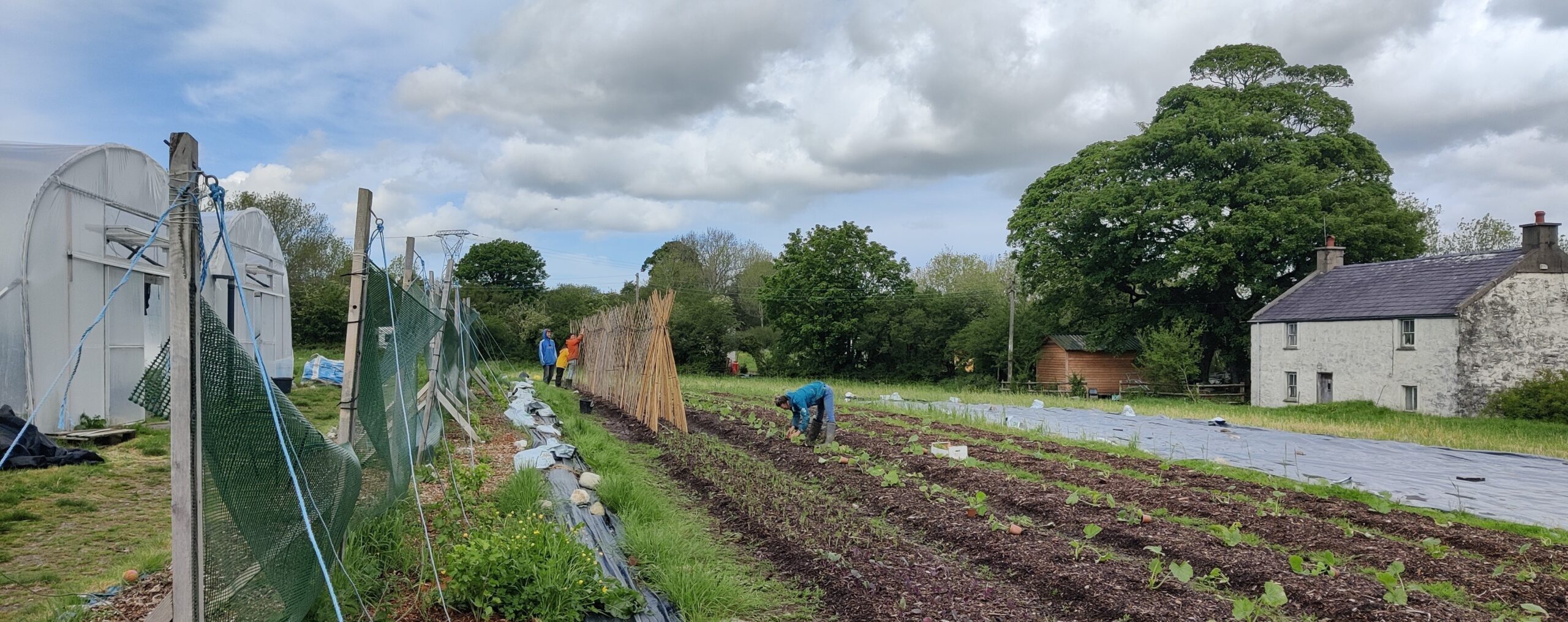
When we came to the farm, the major challenges facing our team were to skill up in commercial-scale organic horticulture so that we could reliably grow a lot of really delicious vegetables on a small area of land, to learn to share power authentically and work together functionally, to build a community network to both market our produce and share our message, and to sort out our financing and repay the loans we had been given to buy the farm. Each one of these topics could warrant a book writing about it on its own, and I would like to emphasize that as a group we far from experienced or even particularly knowledgable about all these things when we started; but we make the road by walking as they say and we had passion and determination on our side, and that counts for a lot!
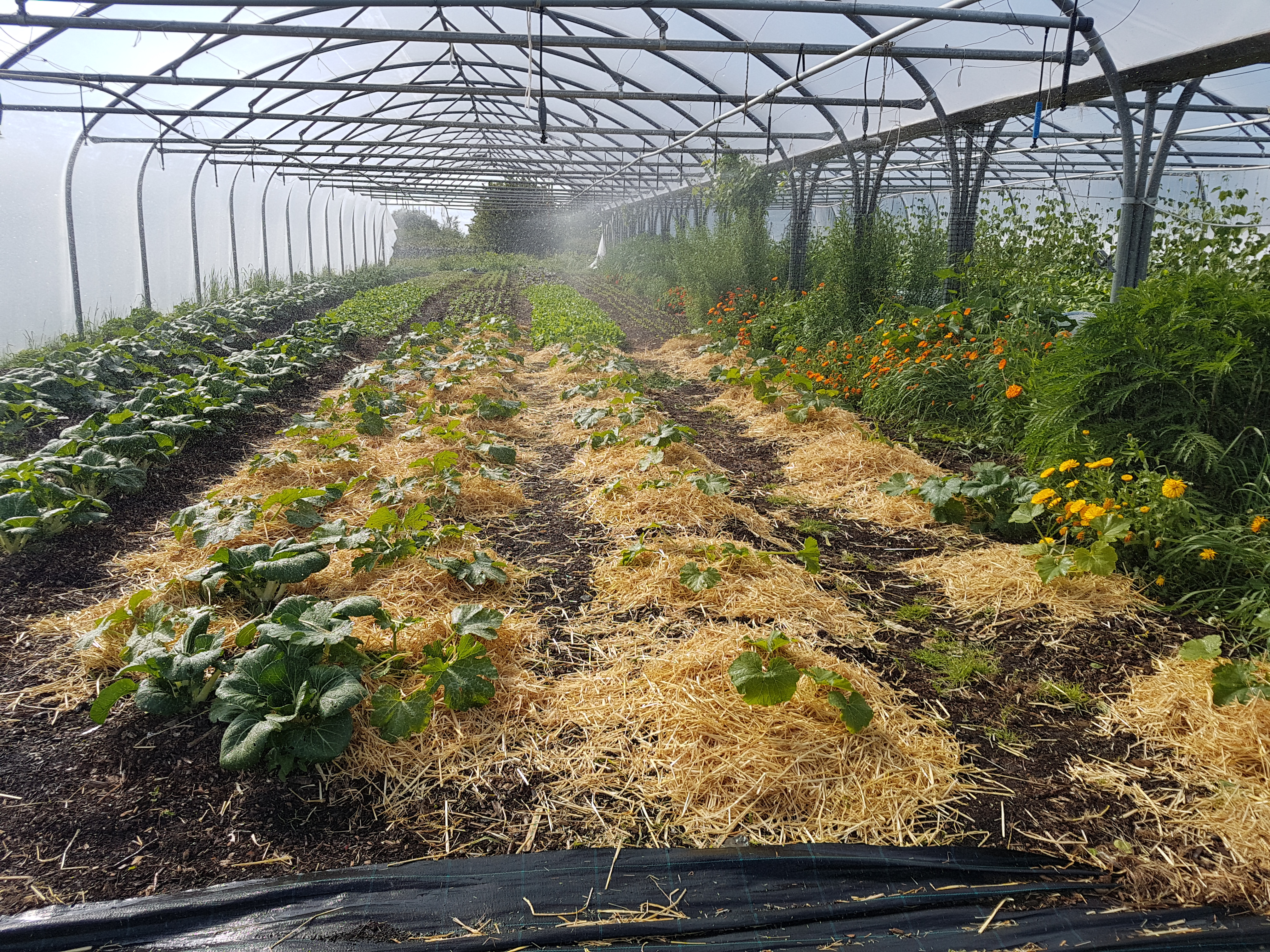
In the seven years since we founded we have taken our veg production up from enough for 60 families for 6 months a year to enough for 200 families for 12 months a year on the same area of land; planted over 4000 trees in shelterbelts and windbreaks; built up our team from 4 members to 14 and created governance arrangements and policies that keep us functioning happily; become a hub for other regenerative local producers to sell their produce and become a supplier for several local shops and restaurants.
We started working with school groups and university students and set up a community garden; raised thousands of pounds for land-based projects in the Global South; run five 6-month residential traineeships to help aspiring growers get the start they need to move on in the sector; and we are now in the process of moving our farm into community ownership via a Community Share Offer!
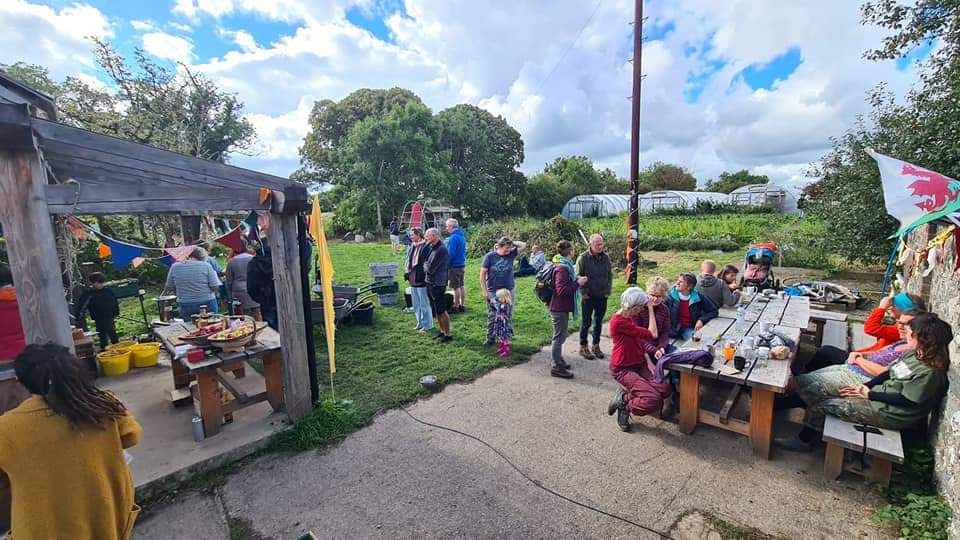
We are really excited about the Share Offer as a piece of design that will ensure succession at Tyddyn Teg, both of workers and investors, making our project genuinely sustainable beyond our own lifetimes.
We think that community farms are a cornerstone of future food security and that land is too important a resource to rest in the hands of the few, so, learning from nature where diversity equals resilience, we are diversifying the ownership of our farm through the community share offer whilst we diversify the management of it through being a workers’ co-op with flexible membership.
The way it works is that investors buy shares in the organisation and become co-owners of the farm. They receive interest on their investment at a rate that the organisation can afford (which is set by the Board every year and currently projected to be 3%).
After an initial period of 3 years where no withdrawals are allowed, people who need their money back can apply to have it returned, and if sufficient funds are available, it will be, plus any interest earned. We will be running an Open Share Offer from Year 3 to create a revolving door mechanism where new investors can provide capital for old investors to get their money out.
As well as this, we have created a redistributive mechanism called the Community Solidarity Fund which will be financed by interest that investors choose to donate to it. This fund will subsidise veg boxes for struggling families who would not otherwise be able to afford them, pay for Open Days and community events, and help support land-based projects in the Global South.
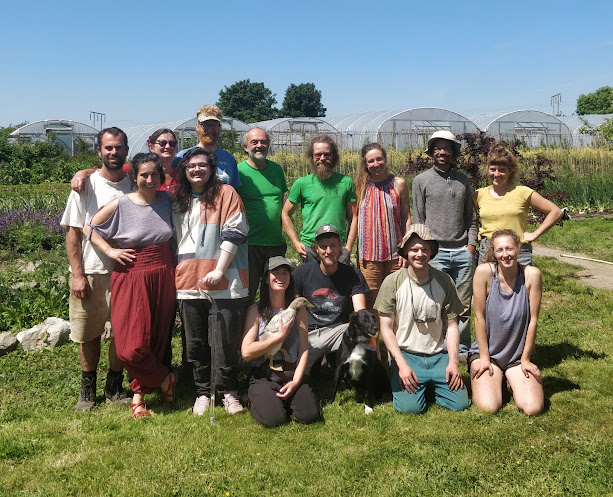
We are looking to raise £400,000 - £450,000 in total, an amount that will not only transfer ownership of the farm and business to the community, but will also allow us to upgrade our facilities in a way that will make us function better as a community farm.
If you ever dreamed of owning a farm, this is one way you could go about it! Investors shouldn’t put in any money that they are likely to desperately need, as it may take some time to get it out later, or in the unlikely event that our farm fails, you could lose it.
On the other hand, it could be a better use for savings than letting your bank decide what to invest in; and is definitely an easier route to revolutionising the food system than buying and managing a whole farm (take it from one who knows!), although I wouldn’t rule that out if you’re feeling energetic!
You might even want to organise a Share Offer of your own. I’ll be talking more about the many things I have learned whilst preparing this share offer and during my time at Tyddyn Teg at this years Festival of Permaculture at Lambourne End – hope to see some of you there. In the meantime, may your sproutings be mighty!